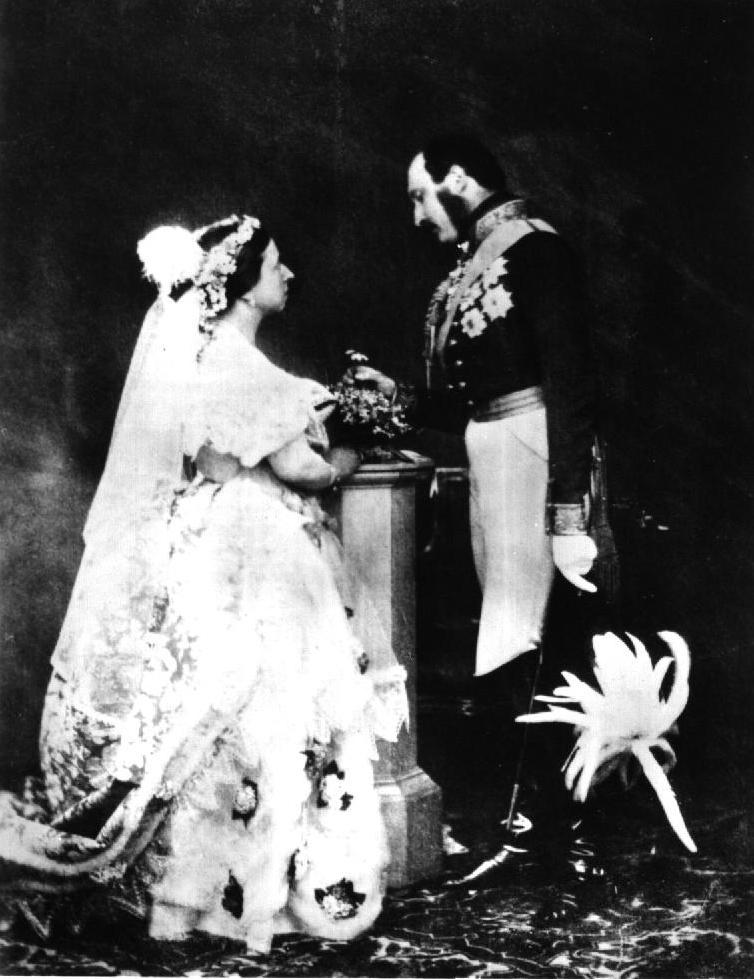Sarah Ferguson, former wife of Prince Andrew and mother of two of Queen Elizabeth’s grandchildren, is the producer of “Young Victoria,” the new movie about her children’s great-great-great-great grandmother, who ruled the British Empire for 63 years. Ferguson has a touching essay in the Huffington Post about her inspiration in making the movie. Clearly, as one young royal bride, she identified with the queen’s challenges in finding privacy and connection in the midst of palace intrigue and public scrutiny.
I became fascinated by the love story of Victoria and Albert. Maybe because my own great love — my Andrew — was not at home. But whatever it took I would study with vigour the love story of these two incredible people.
…
When I wrote the book Victoria and Albert: Life at Osbourne House in 1991, extracts from Victoria’s diary hugely inspired my idea that this great love story had to become a movie.
Ferguson studied the queen’s letters, reading her description of her husband as
“father, mother, friend, companion, advisor, lover, guardian angel.” She wrote,
“He did everything — everywhere! Nothing did I do without him, from the greatest to the smallest, from State Affairs, from Political Questions to the arranging (of) our Albums, our little photographs, the designing and ordering of Jewelry, the buying of a dress or a bonnet … all was done together; my first word was ‘I must ask Albert.'”
Ferguson, working with top talent behind the camera and on screen, has produced, as she hoped, a movie Her Majesty would be proud to watch. I hope it inspires viewers to learn more about this remarkable woman and her true love story.





